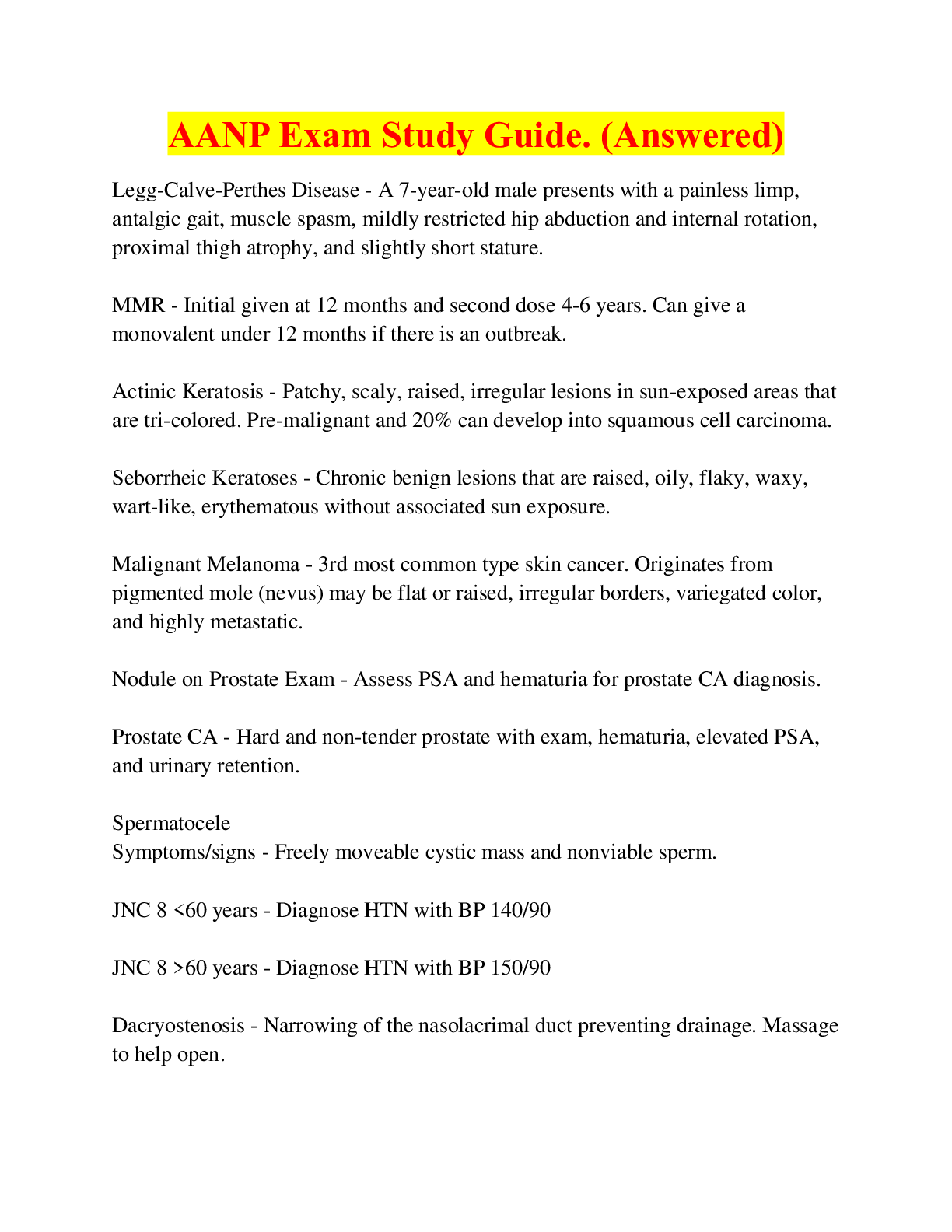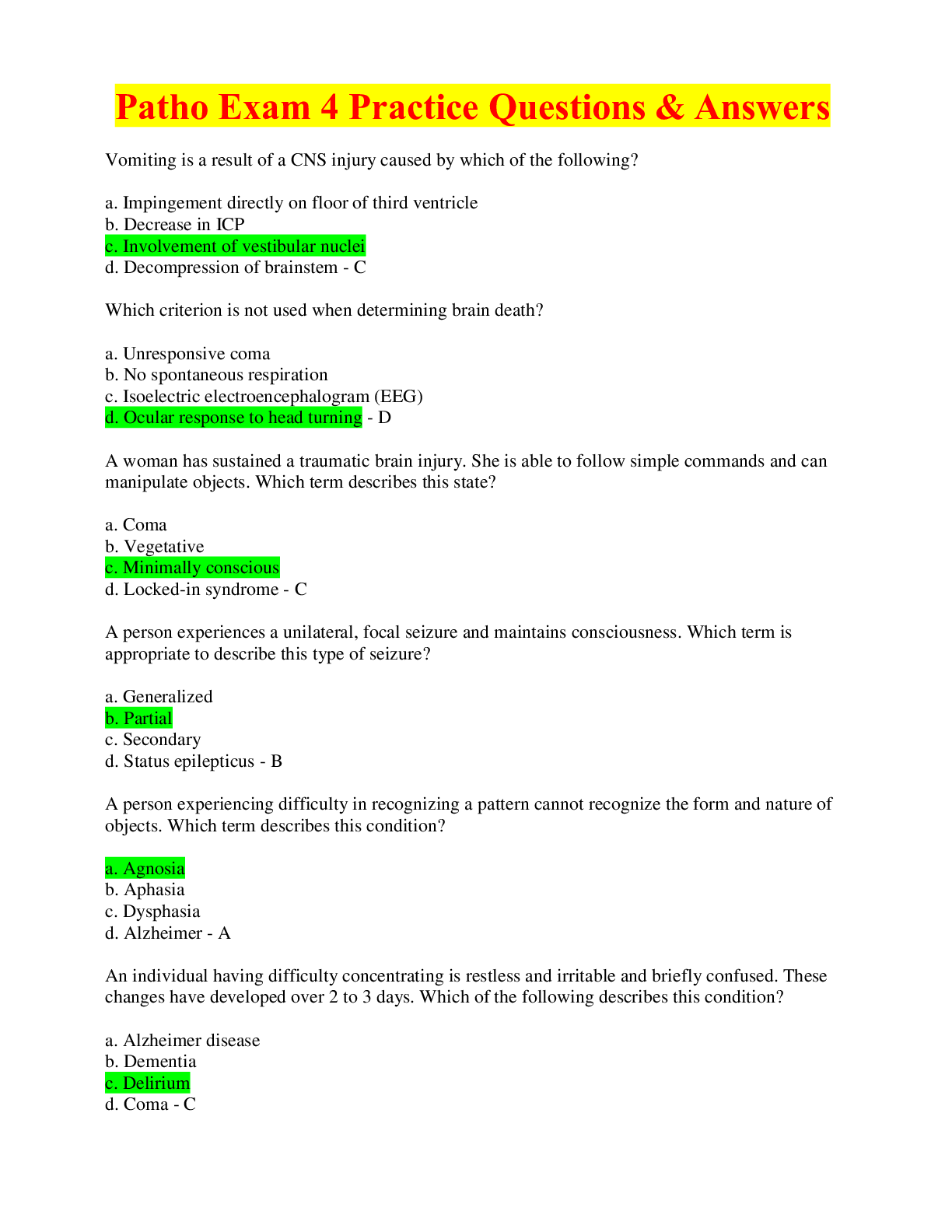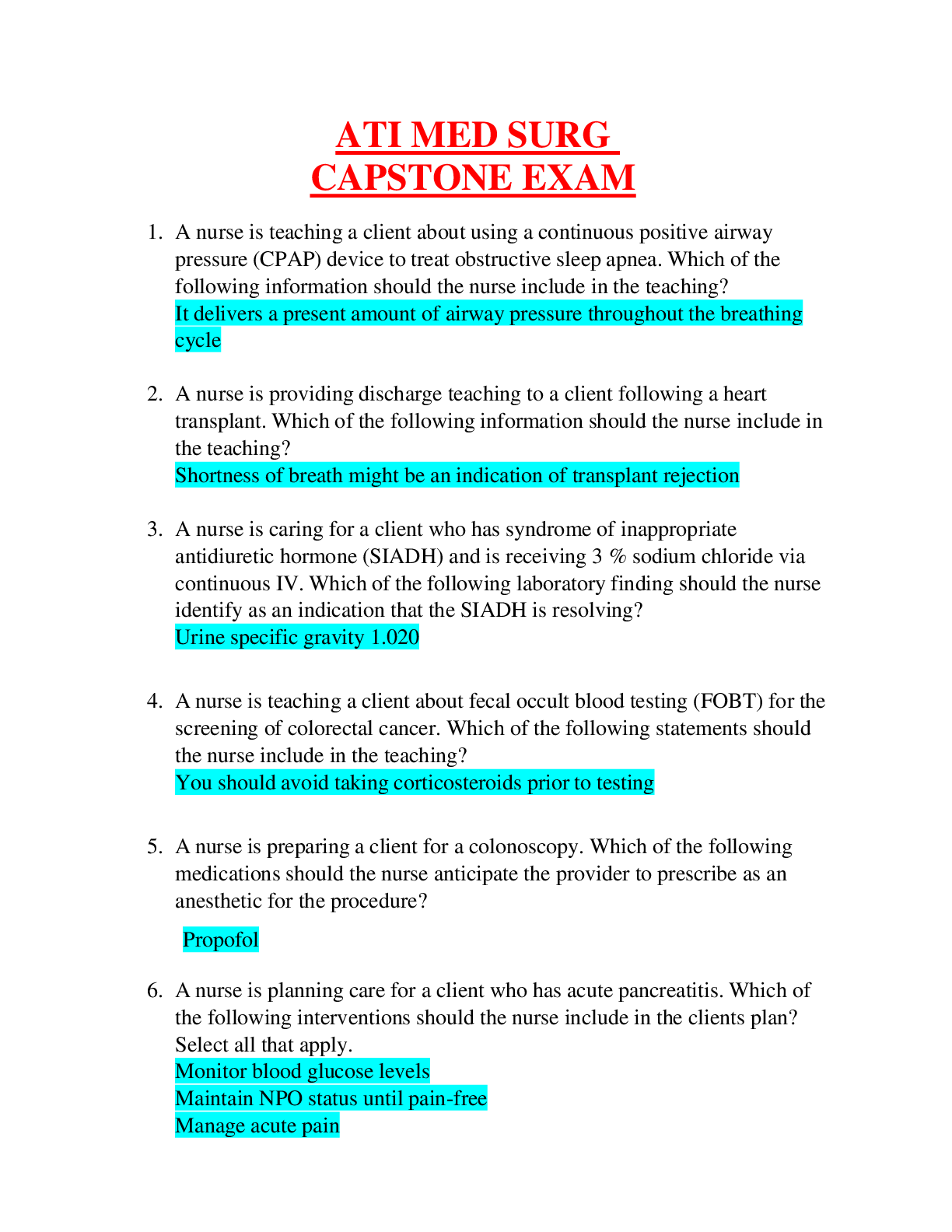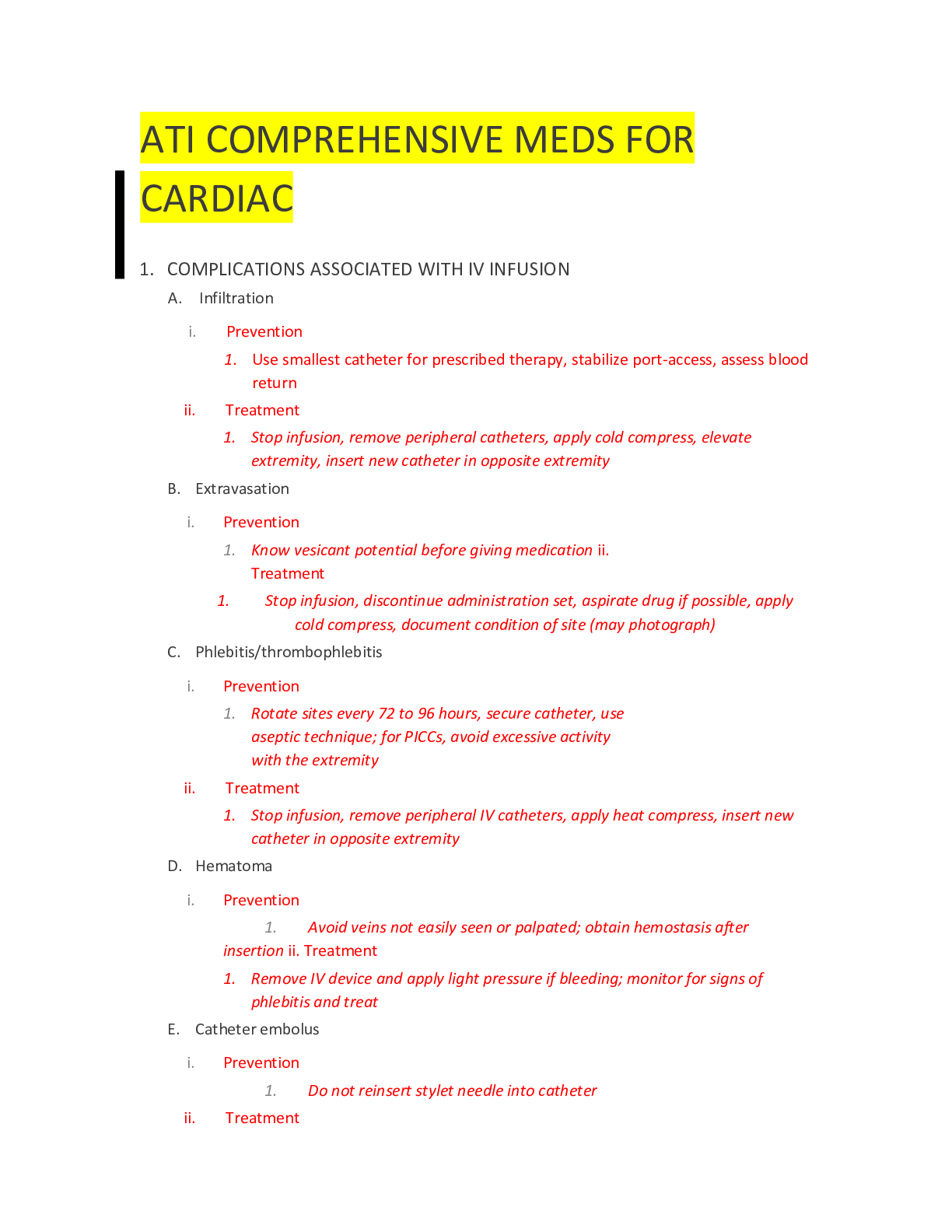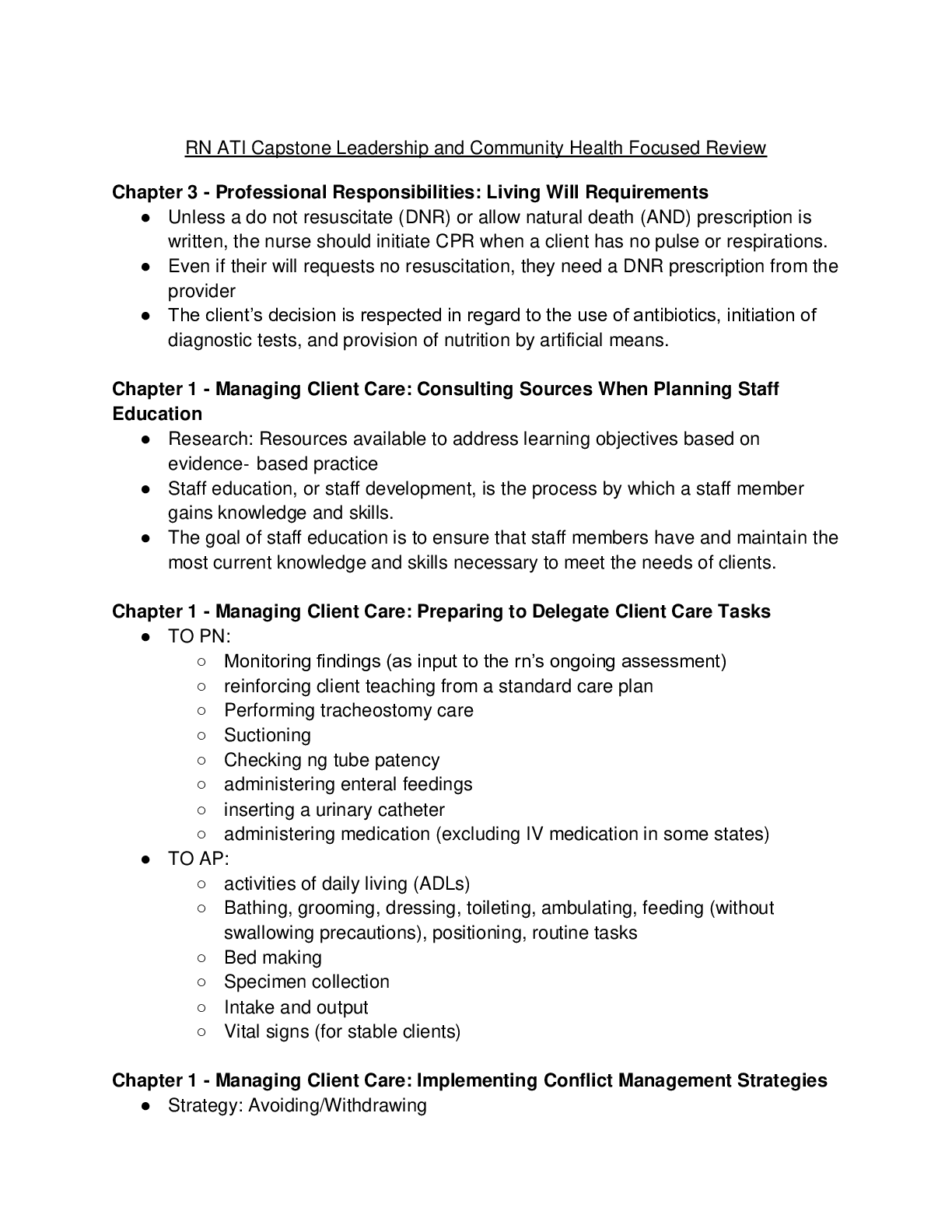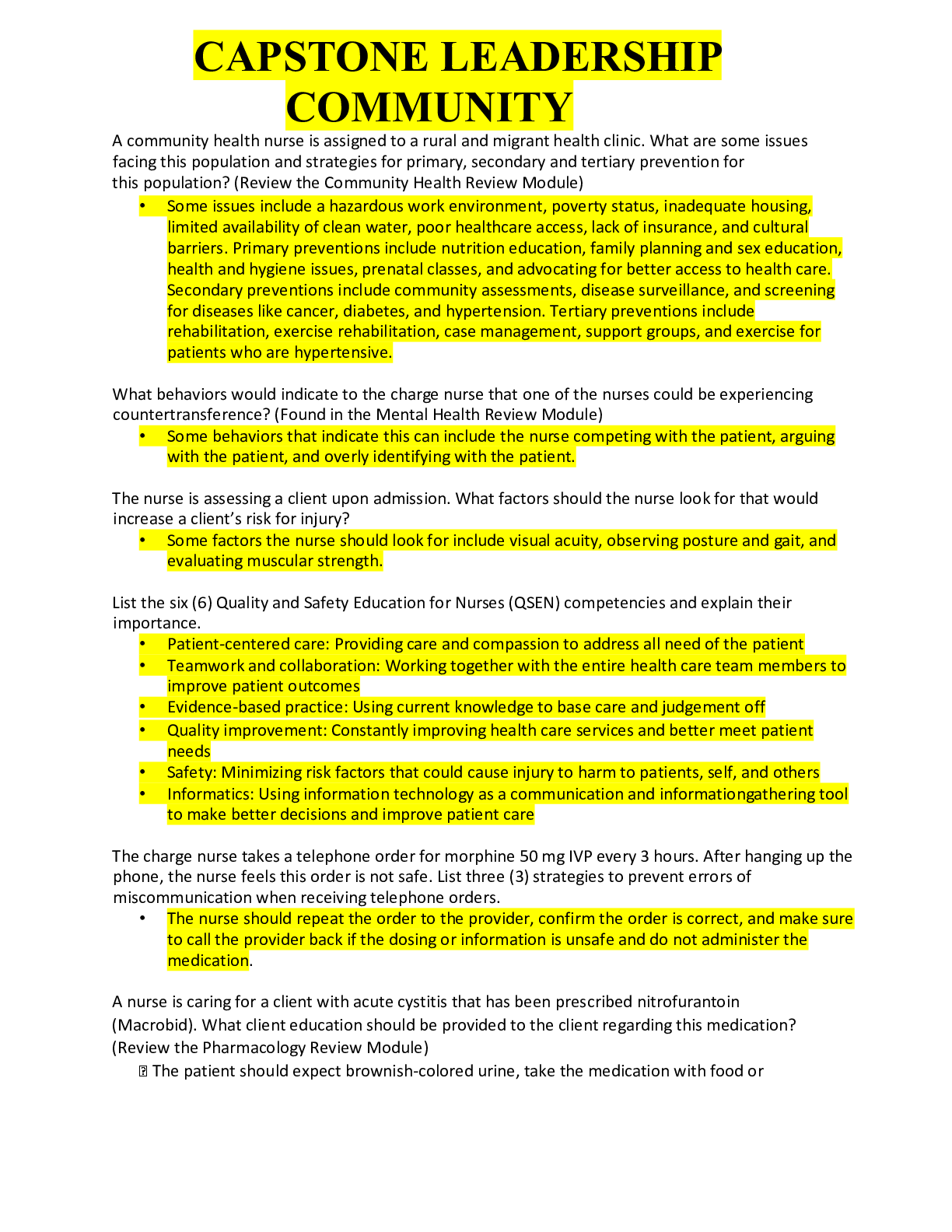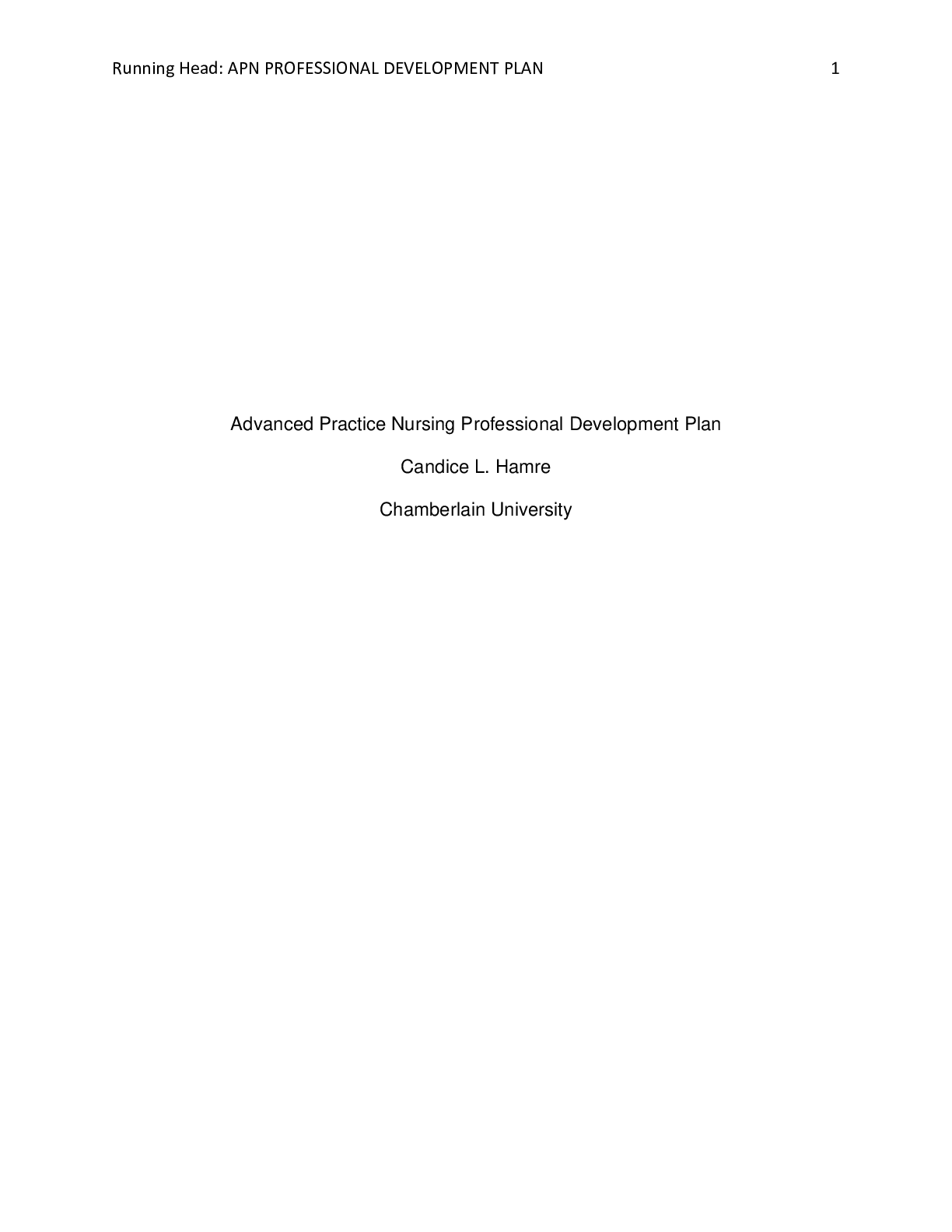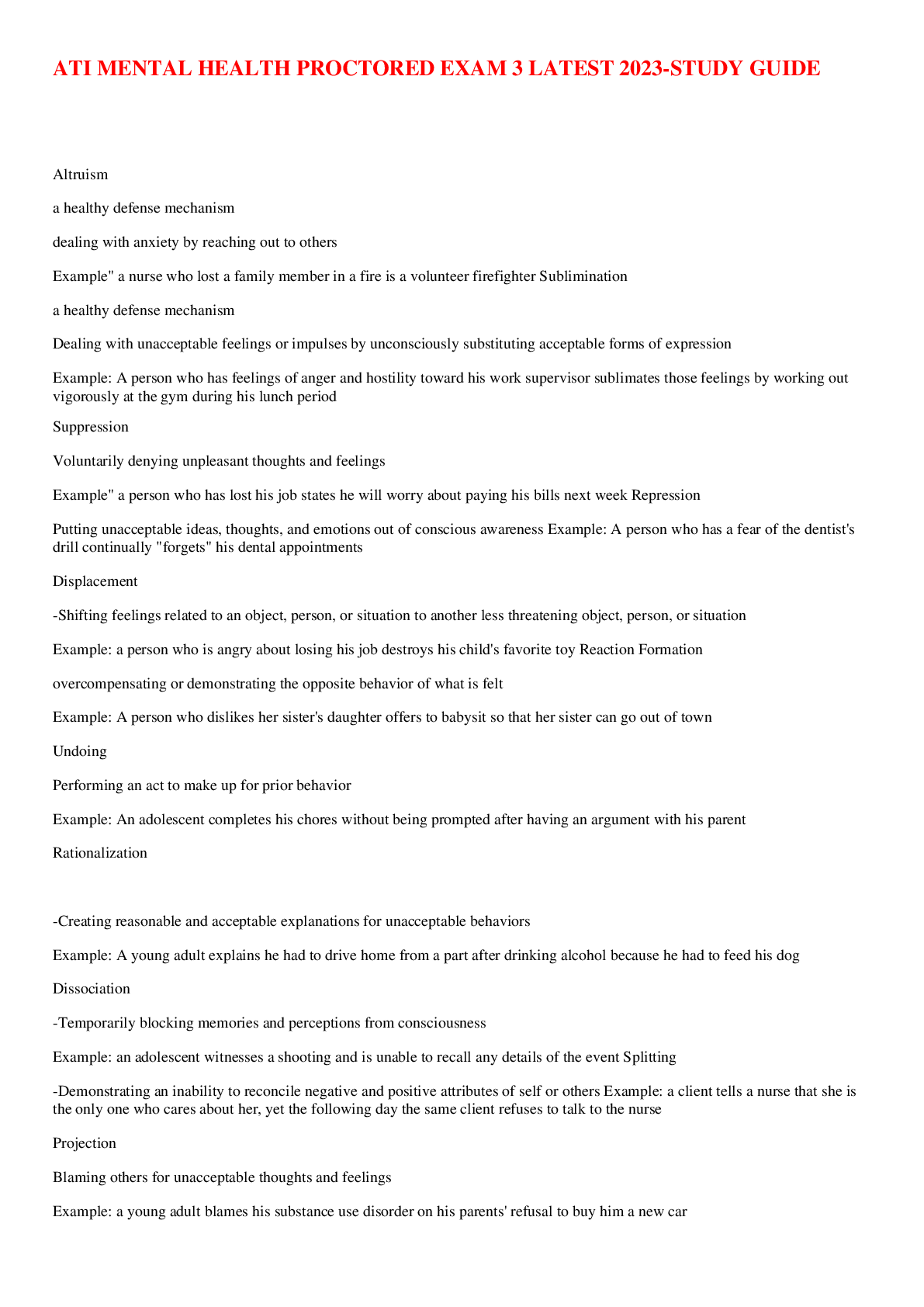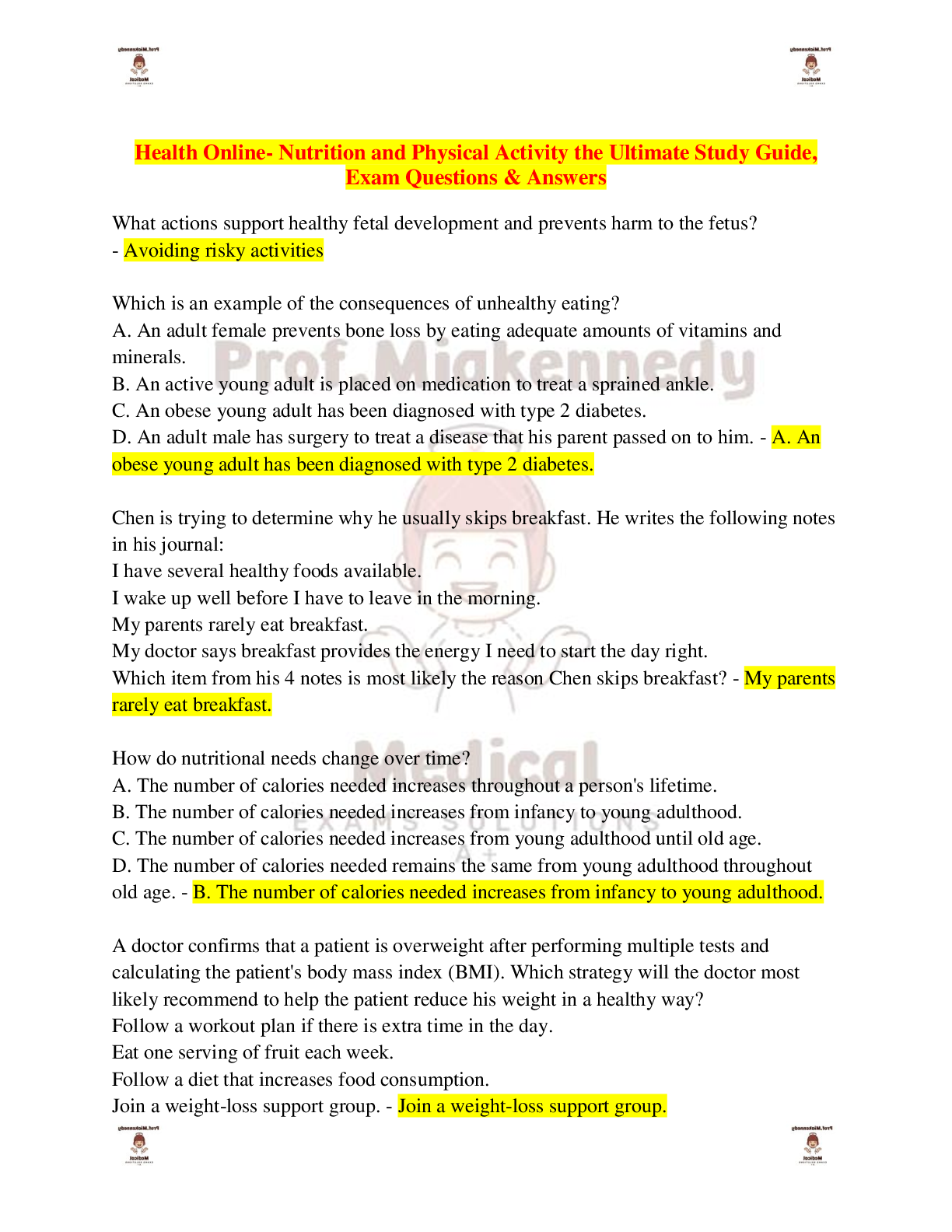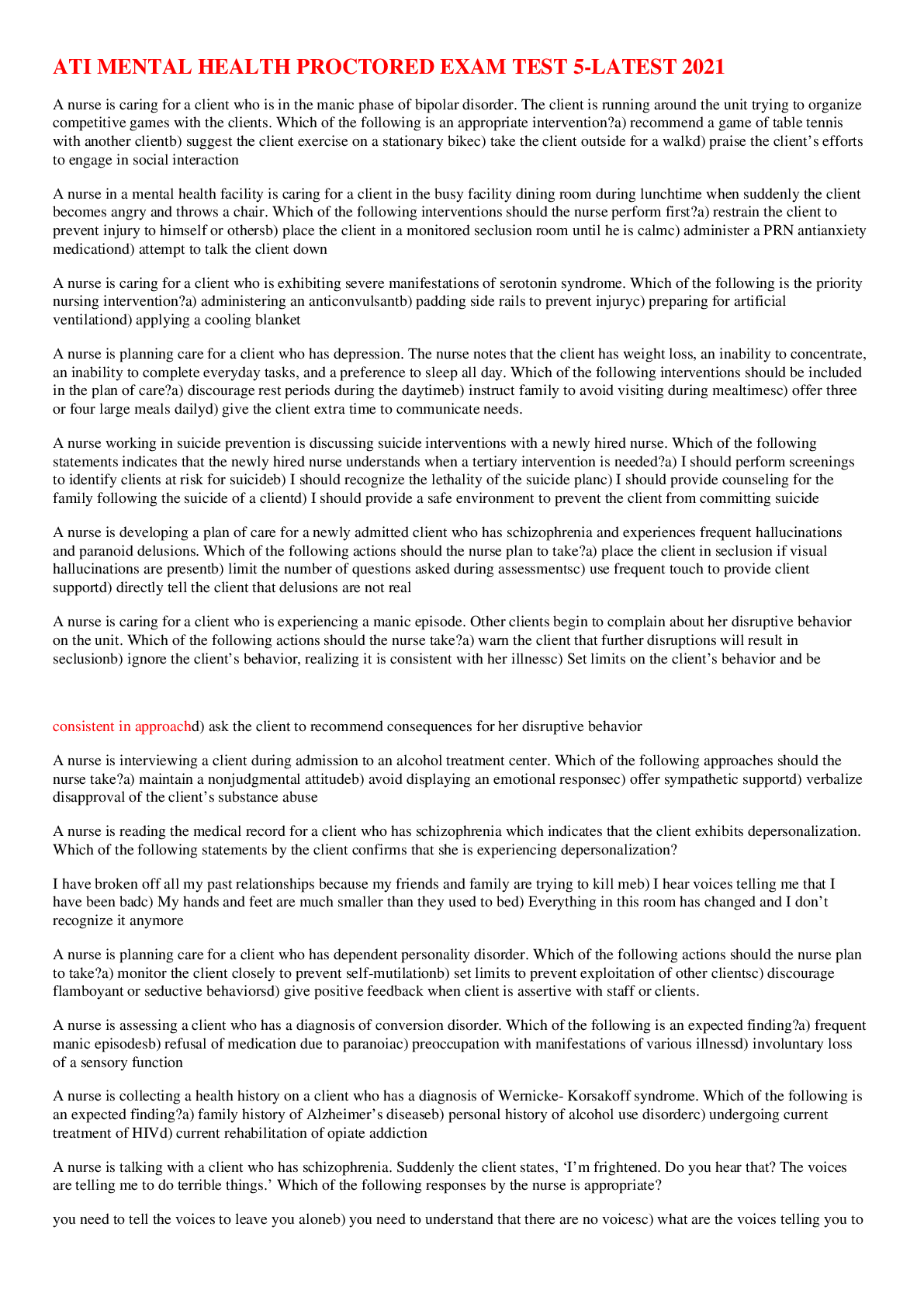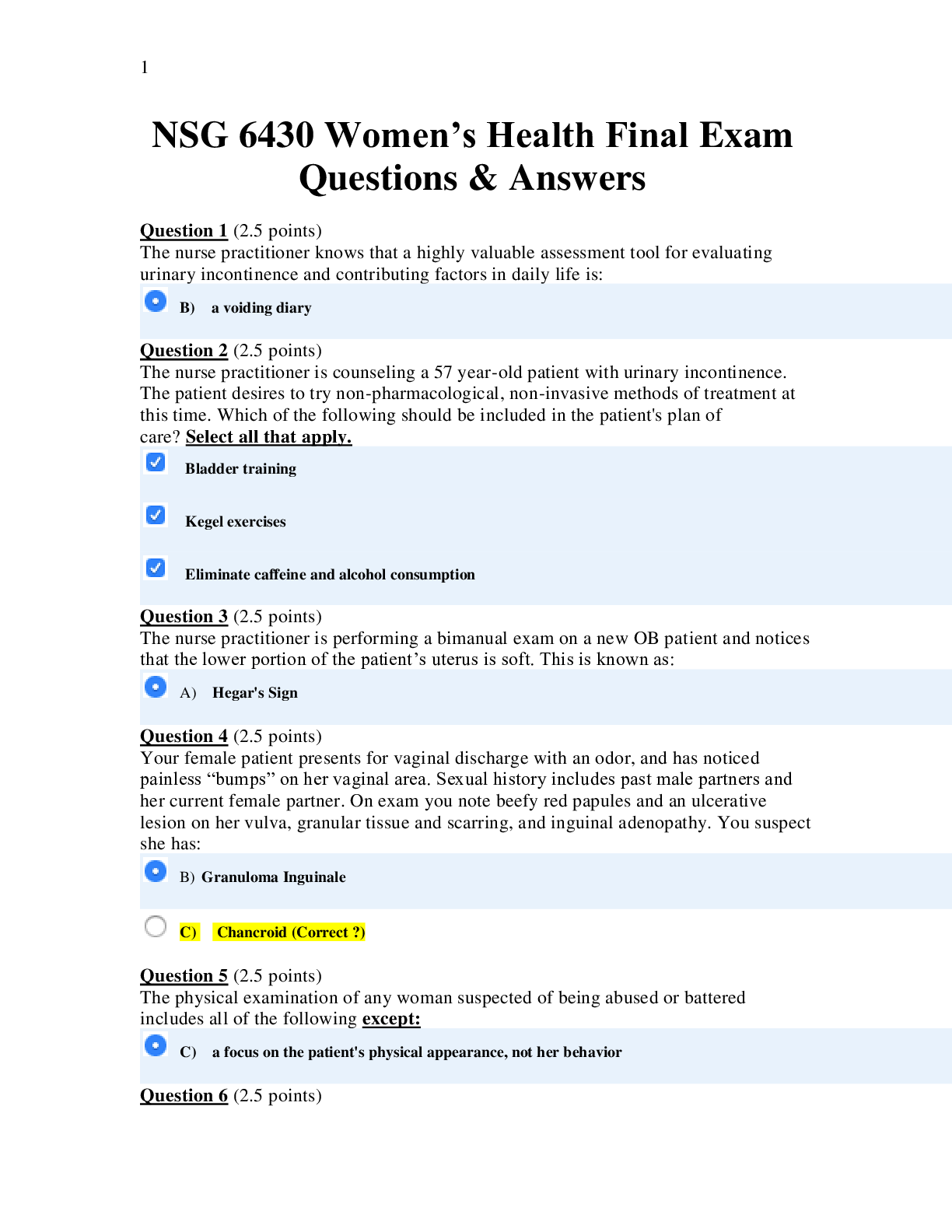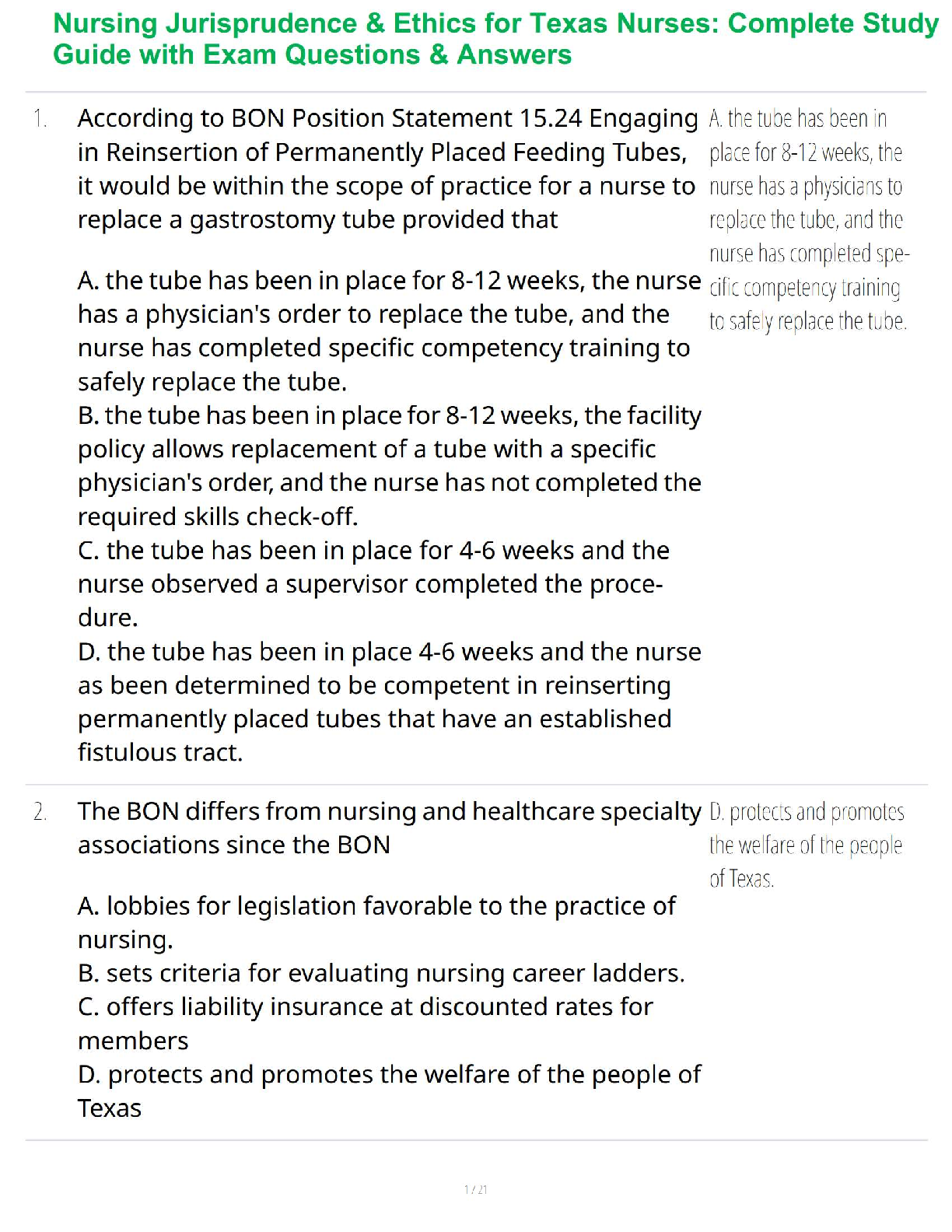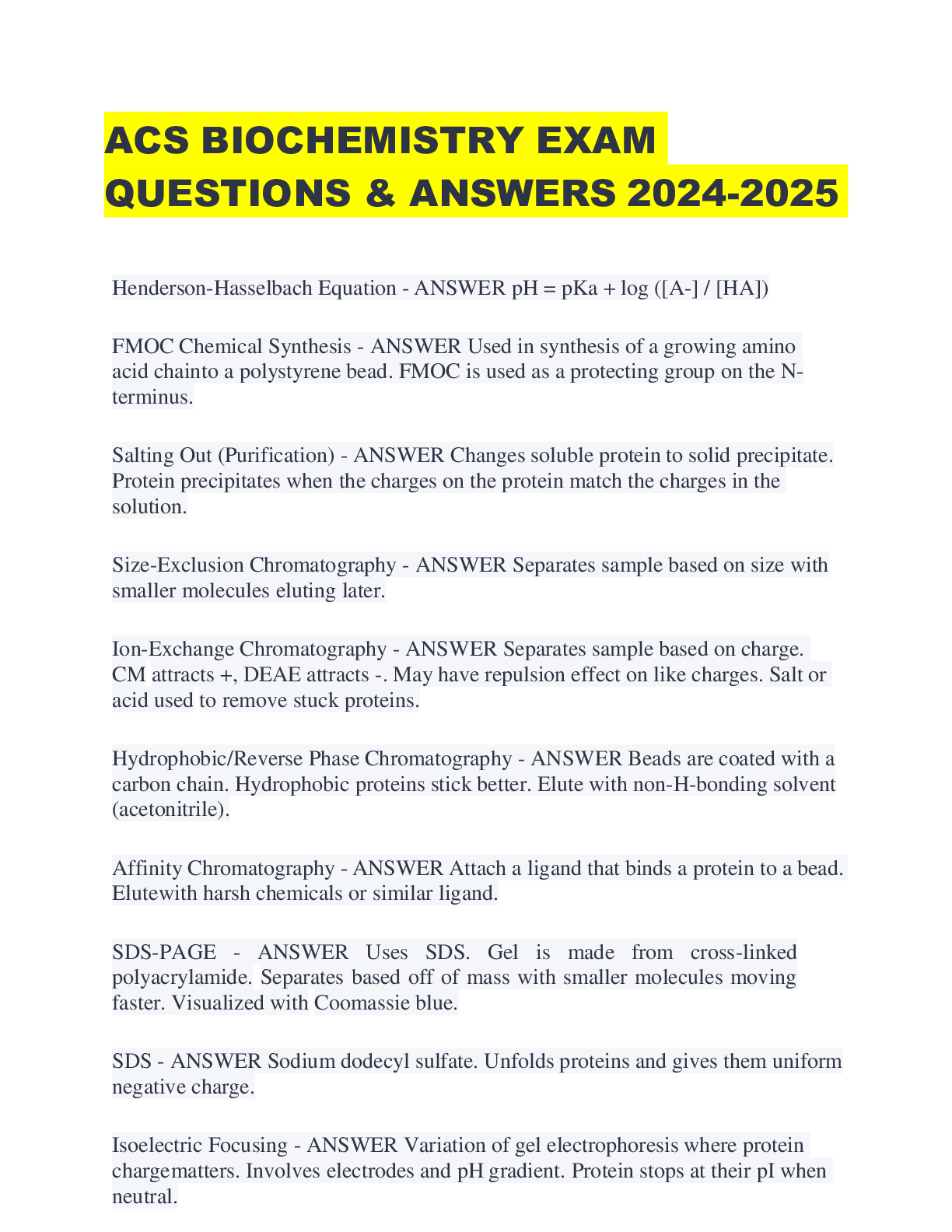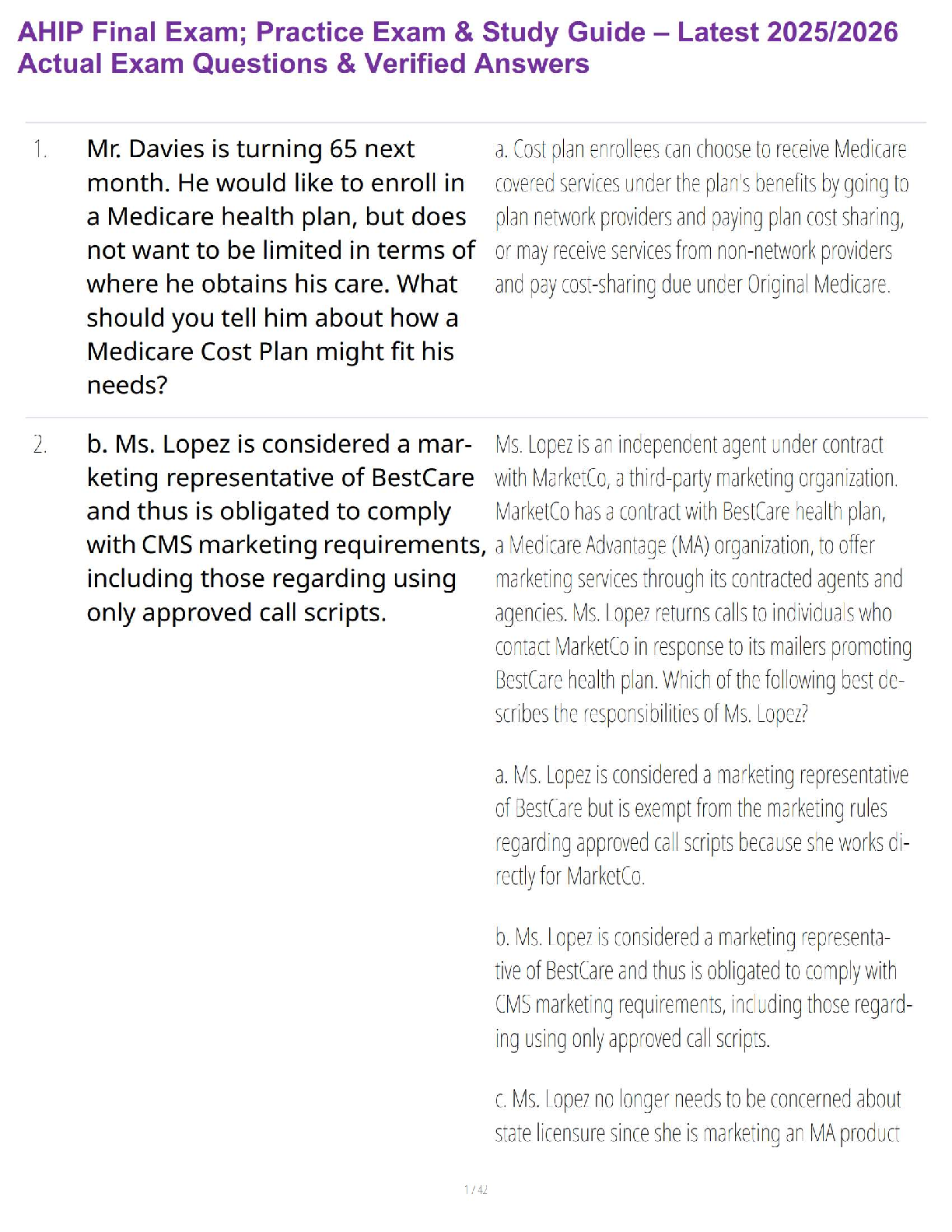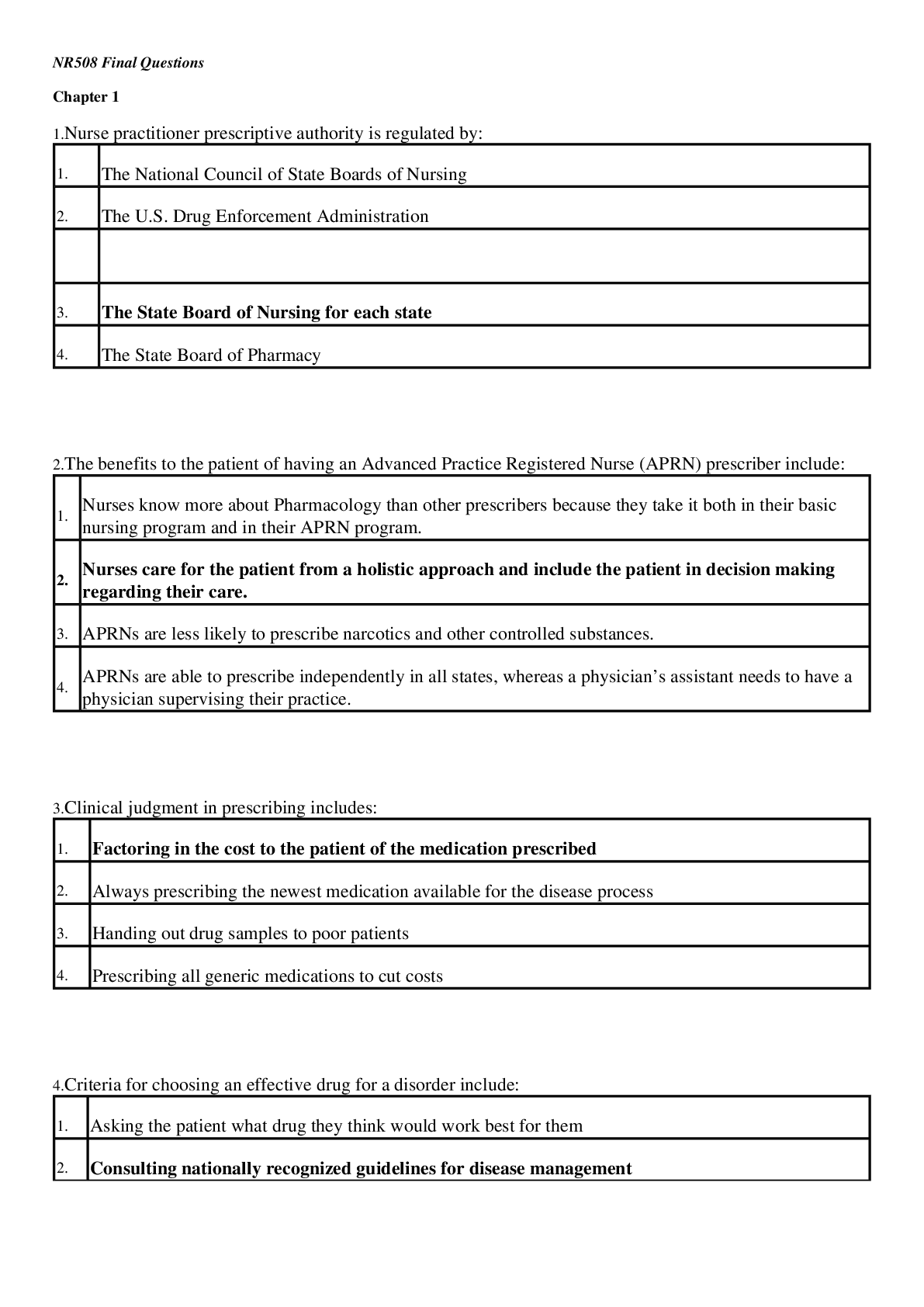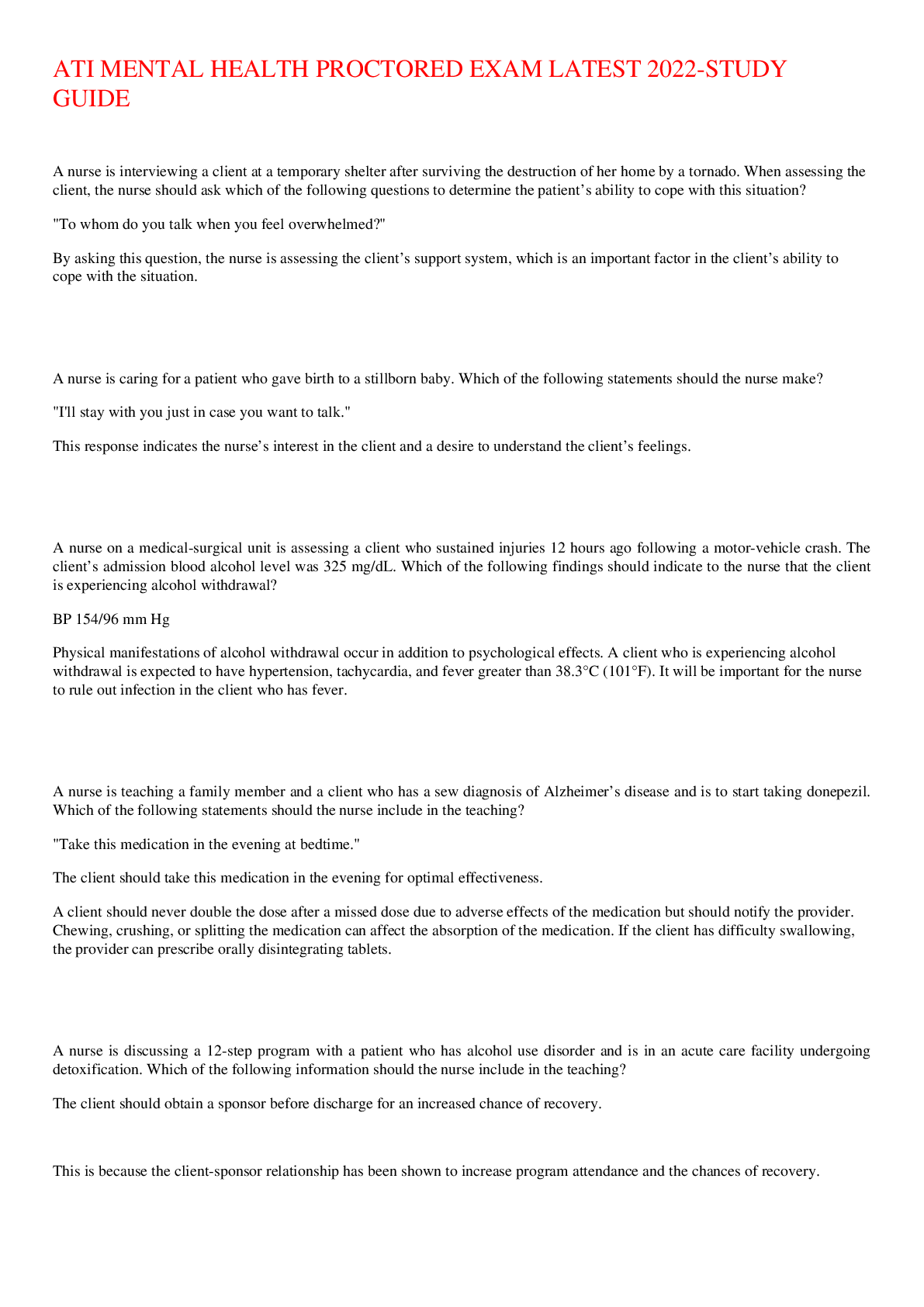*NURSING > STUDY GUIDE > ATI Mental Health Proctored Exam Study Guide, A+ Exam Questions & Answers (All)
ATI Mental Health Proctored Exam Study Guide, A+ Exam Questions & Answers
Document Content and Description Below
ATI Mental Health Proctored Exam Study Guide, A+ Exam Questions & Answers-The client is responsive and able to fully respond by opening their eyes and attending to a normal tone of voice and speech. W... hat is the level of consciousness? - Alert The client is able to open their eyes and respond but is drowsy and falls asleep readily. What is the level of consciousness? - Lethargic The client requires vigorous or painful stimuli (pinching a tendon or rubbing the sternum) to elicit a brief response. They might not be able to respond verbally. What is the level of consciousness? - Stuporous The client is unconscious and does not respond to painful stimuli. What is the level of consciousness? - Comatose How to test a client's immediate memory - Ask the client to repeat a series of numbers or a list of objects How to test a client's recent memory - Ask the client to recall recent events, such as visitors from the current day, or the purpose of the current mental health appointment or admission How to test a client's remote memory - Ask the client to state a fact from his past that is verifiable, such as his birth date or his mother's maiden name How to assess a client's ability to calculate - Ask the client to count backward from 100 in sevens How to assess a client's ability to think abstractly - Ask the client to interpret something complex such as, "A bird in the hand is worth two in the bush." Glasgow coma scale - Used to obtain a baseline assessment of a client's level of consciousness; highest score is 15 and indicates that the client is awake and responding appropriately; a score of 7 or less indicates that the client is in a coma Serious mental illness - Includes disorders classified as severe and persistent mental illnesses; clients often have difficulty with ADLs; can be chronic or recurrent A charge nurse is discussing mental status exams with a newly licensed nurse. Which of the following statements by the newly licensed nurse indicates an understanding of the teaching? (Select all that apply) A. "To assess cognitive ability, I should ask the client to count backward by sevens." B. "To assess affect, I should observe the client's facial expression." C. "To assess language ability, I should instruct the client to write a sentence." D. "To assess remote memory, I should have the client repeat a list of objects." E. "To assess the client's abstract thinking, I should ask the client to identify our most recent presidents." - A. Counting backward by sevens is an appropriate technique to assess a client's cognitive ability. B. Observing a client's facial expression is appropriate when assessing affect. C. Writing a sentence is an indication of language ability. Remote language is tested by asking the client to state a fact from his past that his verifiable (date of birth). Abstract thinking is tested by asking the client to interpret something. A nurse is planning care for a client who has a mental health disorder. Which of the following actions should the nurse include as a psychobiological intervention? A. Assist the client with systematic desensitization therapy. B. Teach the client appropriate coping mechanisms. C. Assess the client for comorbid health conditions. D. Monitor the client for adverse effects of the medications. - D. Monitoring for adverse effects of medications is an example of a psychobiological intervention. Systematic desensitization is cognitive and behavioral. Teaching coping mechanisms is a counseling or health teaching. Assessing for comorbid conditions is health promotion and maintenance. A nurse in an outpatient mental health clinic is preparing to conduct an initial client interview. When conducting the interview, which of the following actions should the nurse identify as the priority? A. Coordinate holistic care with social services. B. Identify the client's perception of her mental health status. C. Include the client's family in the interview. D. Teach the client about her current mental health disorder. - B. Assessment is the priority action. Identifying the client's perception of her mental health status provides important information about the client's psychosocial history. A nurse is told during change of shift report that a client is stuporous. When assessing the client, which of the following findings should the nurse expect? A. The client arouses briefly in response to a sternal rub. B. The client has a glasgow coma scale score less than 7. C. The client exhibits decorticate rigidity. D. The client is alert but disoriented to time and place. - A. A client who is stuporous requires vigorous or painful stimuli to elicit a response. B & C occur with comatose patients. A nurse is planning a peer group discussion about the DSM-5. Which of the following information is appropriate to include in the discussion? (Select all that apply) A. The DSM-5 includes client education handouts for mental health disorders. B. The DSM-5 establishes diagnostic criteria for individual mental health disorders. C. The DSM-5 indicates recommended pharmacological treatment for mental health disorders. D. The DSM-5 assists nurses in planning care for client's who have mental health disorders. E. The DSM-5 indicates expected assessment findings of mental health disorders. - B, D, & E. The DSM-5 establishes diagnostic criteria, assists nurses in planning care, and identifies expected findings for mental health disorders. The DSM-5 does not contain client education handouts or recommended pharmacological treatment. Beneficence - The quality of doing good, can be described as charity Autonomy - The client's right to make their own decisions Justice - Fair and equal treatment for all Fidelity - Loyalty and faithfulness to the client and to one's duty Veracity - Honesty when dealing with a client [Show More]
Last updated: 7 months ago
Preview 5 out of 95 pages

Loading document previews ...
Buy this document to get the full access instantly
Instant Download Access after purchase
Buy NowInstant download
We Accept:

Also available in bundle (1)
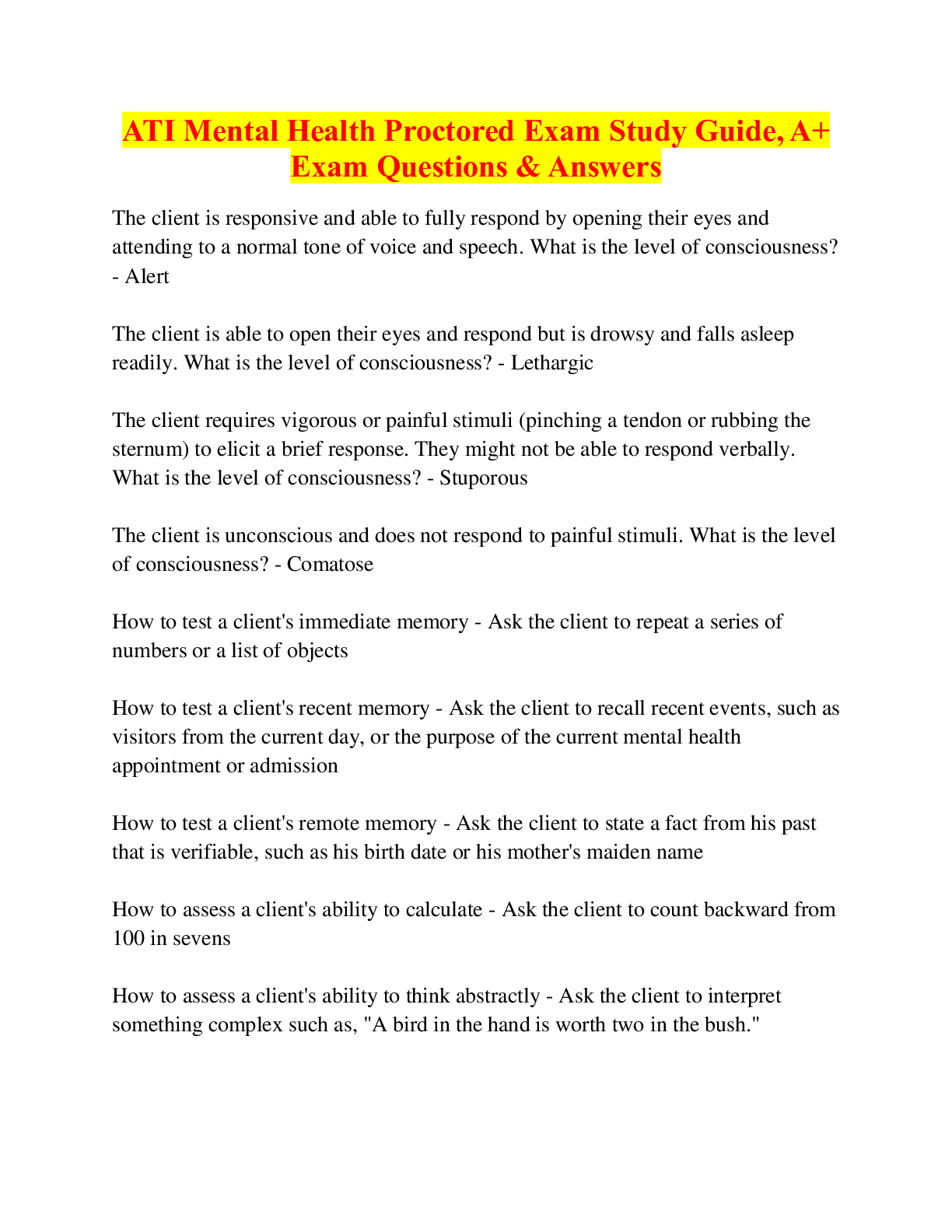
ATI Mental Health Proctored Exams BUNDLE, All Answered ( Latest 2025/2026 Exams), All Rated 100%
ATI Mental Health Proctored Exams BUNDLE, All Answered ( Latest 2025/2026 Exams), All Rated 100%
By PROF 7 months ago
$26.5
3
Reviews( 0 )
$15.50
Can't find what you want? Try our AI powered Search
Document information
Connected school, study & course
About the document
Uploaded On
Jan 20, 2025
Number of pages
95
Written in
Additional information
This document has been written for:
Uploaded
Jan 20, 2025
Downloads
0
Views
28

